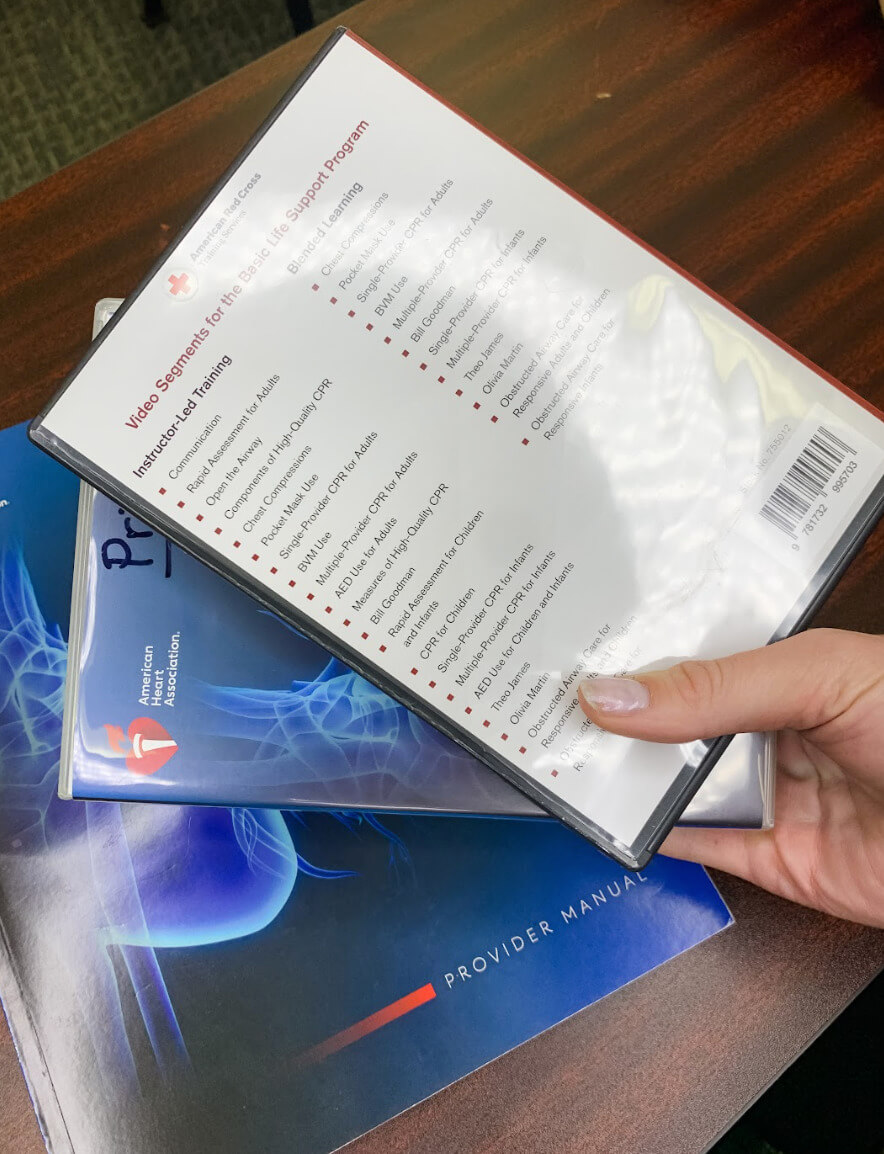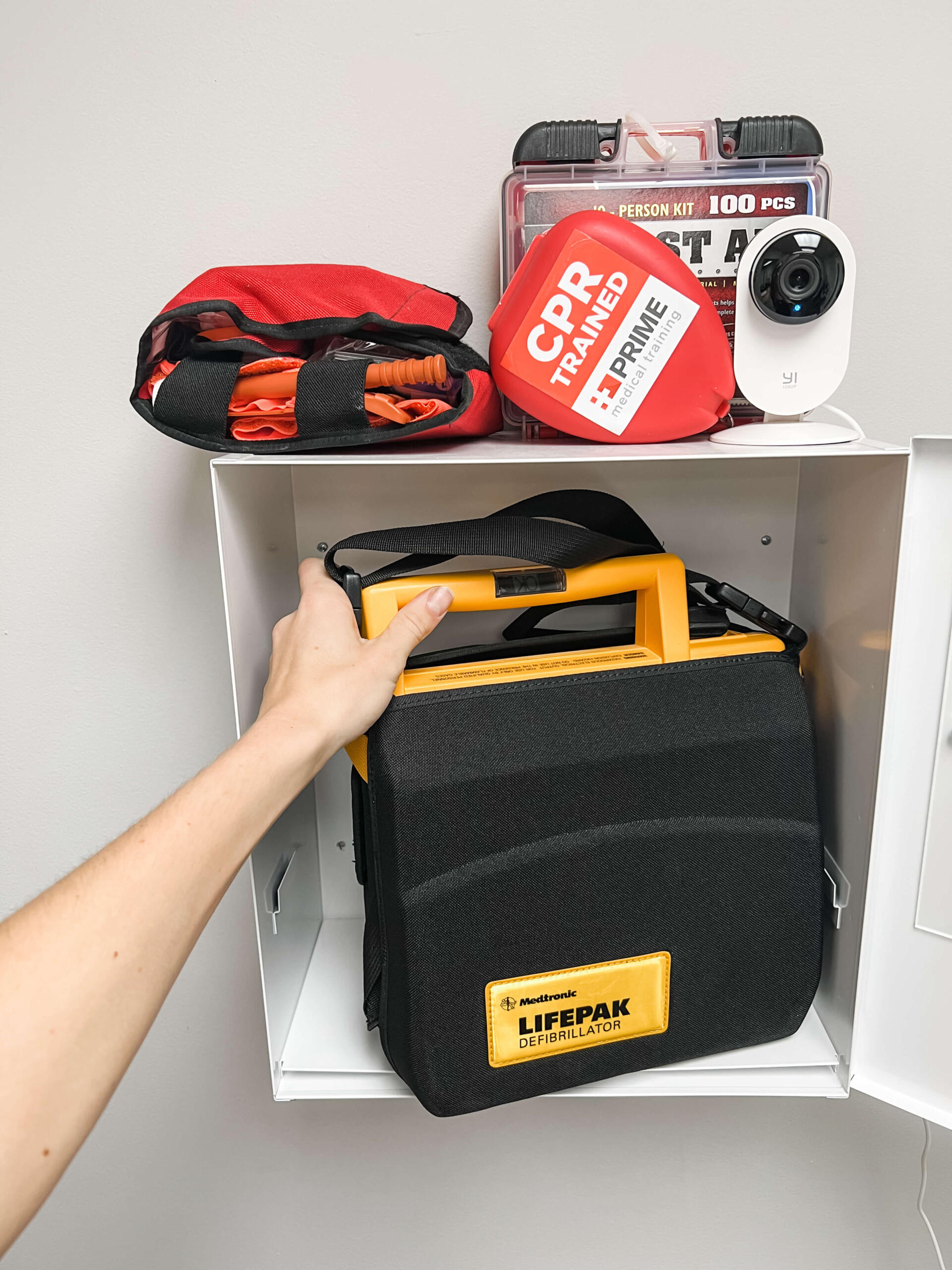Red Cross CPR Training vs. AHA CPR Training

If you are looking to become CPR certified you have a choice to make about who you should earn your certification through. Let us help you understand the difference between Red Cross CPR training and AHA CPR training.
Watch this video, or keep reading below for the full breakdown.
What all is involved in Red Cross CPR Training?
Red Cross knows that many of the prospective students have little to no previous medical experience, so they put an emphasis on basic knowledge of common medical emergencies. According to the Red Cross website they want to make sure all graduates have an understanding of
- Asthma emergencies
- Anaphylaxis

- Burns
- Choking
- Diabetic emergencies
- External bleeding
- Environmental emergencies
- Heart Attack
- Poisoning
- Neck, head and spinal injuries
- Stroke
- Seizure
After you demonstrate your understanding of how to identify and respond to these common emergencies you will then move into the CPR portion of the course where you will also learn how and when to operate an AED.
Every aspect of this training is vital so candidates should be prepared to be tested on everything they learn on the test at the end of the course.
How long is a Red Cross CPR Training course?
Similar to an American Heart Association a Red Cross CPR class takes approximately 8 hours usually spread over a few days. During the course you will have plenty of hands on learning to practice your CPR and First aid. The class concludes with a 25 question written test that you will need to pass in order to receive your certification card.
Difference between Red Cross CPR Training & AHA CPR Training?
While the material of CPR training does not vary from company to company the manner in which it is taught and tested can often vary. The American Heart Association certifies every student for two years while the American Red Cross offers certifications that can last one or two years. The American Heart Association researches and sets the guidelines for CPR training while the Red Cross only trains people using those set guidelines. The difficulty of the course remains the same for both but the Red Cross only requires an 80% to pass the final exam while the American Heart Association requires an 84%.While anyone may taken any AHA course the Red Cross does have courses that only healthcare professionals may take. Finally, the two are widely accepted, but more places prefer the American Heart Association to the Red Cross.
How much does Red Cross CPR Training costs?
Like the American Heart Association, the American Red Cross licenses training centers all over the country in order to fulfill certifications but you still may choose to take a class directly from the Red Cross, but it will be more expensive than AHA at as much as $300 per person with all materials included.
Can Red Cross CPR Training be taken online, or as a blended courses?
Just like the American Heart Association, Red Cross does offer a variety of options for anyone looking to get their certification. A prospective student may choose to utilize their local Red Cross to take a class or skills test or use one of their many licensed training centers for fully in person instruction, or an online version with an in person skills demonstration at the end of the course. However you choose to learn you can not go wrong learning a new, important skill.
Upon completion of my Red Cross CPR training, what certifications am I awarded?
Upon completion of the course you will be sent a certification in Basic Life Support, Advanced Life Support, or Pediatric Advanced Life Support depending on what course you took. This certification will most likely be for two years unless you take one of the more advanced courses offered by the red cross which means you will need to renew in a year. Once you have your card, you are ready to start your new journey of saving lives!
Summary
Generally speaking, both the American Heart Association Training and American Red Cross training courses are more than adequate. However, you should check with your employer and make sure to get the training you need for your workplace. Furthermore, scout classes in your area to see if one type of course better fits your budget or is more available then the other.
To learn more about where to get certified read: Where to get CPR certified Today!


